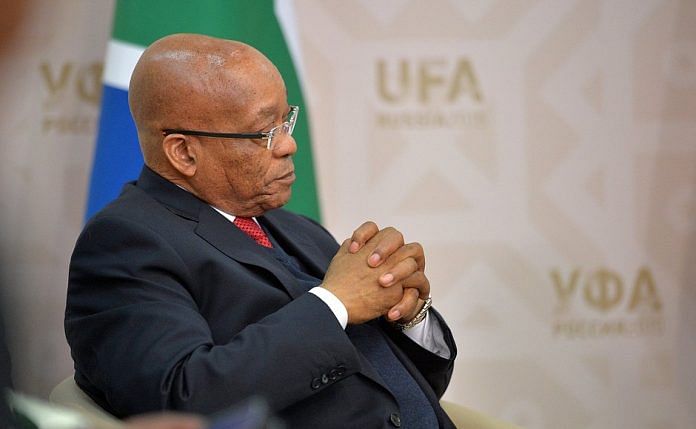South African president to face a “secret” no confidence vote
Add the clause of anonymity to the already unnerving affair of a no-confidence, and we have a recipe for a leader’s nightmare. And turns out, South African President Jacob Zuma is all set to face exactly that. Although the embattled president has faced and survived five no confidence motions that could have led him out of office, granting the opposition coalition’s demand, the speaker of the parliament has announced that the vote this time would be anonymous. Zuma along with his entire cabinet would have to step down if the motion is passed.
Even as his exit may be unlikely, the president is bound to now have a harder time containing the ongoing factional struggle in the ANC. The opposition parties which broke into jubilance after the announcement was made, however, may not have much to cheer about either. If only the ANC chooses to circle the wagons against the opposition, Zuma and the party would be able to survive the upheaval.
Days after US sanctions, Renault signs multimillion dollar deal with Tehran
Estranged from the US despite last year’s nuclear deal, Iran may finally have worked a way out to boost its economy even as Donald Trump continues to vilify it for violating the deal. Only a few days ago, Trump imposed new sanctions of Iran. Days later, French carmaker Renault has signed a multimillion dollar deal with it. The $780 million deal, which would produce 1,50,000 cars a year, comes as a victory for Iranian President Hassan Rouhani, who had come to power on the promise of revitalising the sanction-hit economy.
After years of economically crippling isolation, Tehran is now increasingly attracting foreign investors, even as unilateral US trade barriers against business with Iran are still in place. That said, investment in Iran still has its share of impediments. Not only is corruption rampant in the Islamic republic, but political opposition to investment can also be an obstacle.
No clarity over whether UN sanctions can achieve more than Pyongyang’s outrage
There are other countries too where sanctions may not yield the results Trump is hoping for. If nothing else, the newly imposed UN sanctions on North Korea have managed to annoy Pyongyang. But that’s probably it. Being hailed as one of Donald Trump’s rare foreign policy achievement, it remains unclear, what more the sanctions can achieve.
To begin with, Chinese and Russian cooperation is crucial if the sanctions were to be successful. While both the countries voted in favour of the sanctions penalising Pyongyang, their record in policing sanction against the North is not particularly reliable. “The number cited by the Trump administration assumes China and Russia will implement the resolution…Eleven years of United Nations sanctions resolutions prove they will not,”says an analyst. The sanctions do not touch the country’s vital oil imports. North Korean labourers living abroad – who send remittances back home, which the US alleges is used in the country’s weapons program – would not be hit by sanctions either.
Most people believe atheists are more likely to torture and kill than believers
There is a somewhat intuitive association of morality with religion. But a new study across 13 countries published in the Nature Human Behaviour Journal found that people are also likely to associate atheism with moral depravity. The study concludes that the prejudice is so entrenched that anti-atheist suspicion and judgment is evident even among non-believers themselves. “It is striking that even atheists appear to hold the same intuitive anti-atheist bias…I suspect that this stems from the prevalence of deeply entrenched pro-religious norms,” said Will Gervais, who co-authoured the study.
Yet, the bias was strongest in countries with the highest number of believers, including US, UAE and India. Asked whether a person, who tortured animals as a child, and then went on to killing five homeless people after becoming a teacher, was more likely to be religious or atheist, and the answer was overwhelmingly the latter.
Time for Asean to introspect
In the last half century of its existence, Asean’s membership has doubled. Yet, questions over the regional body’s relevance and leadership abound. To begin with, there is reluctance to intervene in the domestic matters of member states. This is particularly true in cases of “sensitive issues” entailing questions of sovereignty. While member countries may be awareness of this limitation, there’s a reason why they won’t let go of their celebrated neutrality: upholding the principle of consensus is crucial for Asean.
Yet, analysts believe that the group must reinvent itself, forgo neutrality for the sake of neutrality and call a spade a spade. “In the present era, political disputes are getting more difficult to resolve. Asean needs to invent itself as a provider of regional leadership and exhibit leadership skills to address complex problems,” one commentator says.



